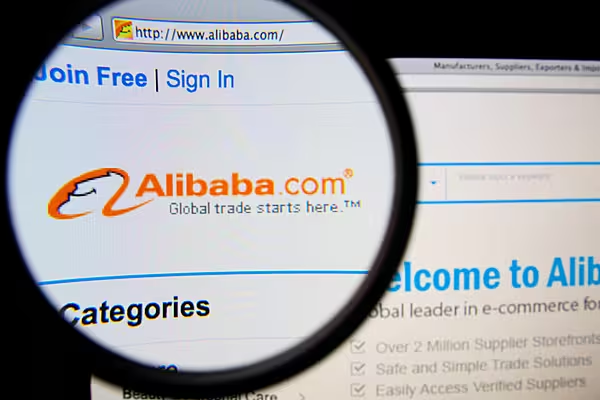A team of executives from Alibaba Group Holding Ltd’s banking and payments arm recently visited Silicon Valley to size up potential investments and lay the groundwork for an initial public offering, expected as soon as next year.
Ant Financial is a behemoth in China, where it serves more than 450 million customers and provides services from wealth management and insurance to credit checks and consumer loans. The company has ambitions of becoming a global powerhouse, but Ant remains a curiosity in much of the world, and it will have to work hard to persuade foreigners to give their financial information and money to a Chinese entity.
Executive chair Lucy Peng, in San Francisco last week with fellow executives, understands the challenges, and said that an IPO will give Ant an opportunity to tell its story, provide transparency to investors, and raise money for acquisitions. In her first interview with the international media, Peng said that many people see Ant as a payments company, when it is much, much more.
“This is probably our fault, and perhaps we should be better at letting everyone know what Ant actually does,” she said at Alibaba’s San Francisco office. “Payments is just the tip of the iceberg. What’s big is under the water.”
Ant’s precursor debuted in 2004, a PayPal-like service called Alipay, which processes transactions for Alibaba’s online retail empire. Peng, a soft-spoken former economics teacher, co-founded Alibaba alongside Jack Ma and helped build the payments processor, renamed Ant Financial in 2014, into what it is today. Under her leadership, the company recruited Wall Street veterans to spearhead the international expansion.
Ant is focusing squarely on the 2.5 billion people around the world who don’t use banks or institutions to save or borrow money, most of them living in Africa, Asia, Latin America and the Middle East. Ant is currently studying Africa and Latin America, and plans to eventually enter all emerging markets in some form.
It also has designs on mature markets and has sought operating licences in South Korea and Hong Kong. Earlier this year, it cut a deal with Uber to let customers, typically Chinese tourists, pay for rides with Alipay in more than 400 cities. In September, the company made its first US investment when it bought an eye-scan start-up called EyeVerify, Inc.
“We’ve visited a lot of companies, and we’re looking into how they run their businesses,” Peng said. “We still see the United States as the centre of innovation in technology. We’re here to learn.”
In October, Peng handed the CEO job to Eric Jing, who joined Alibaba in 2007 as the vice-president of finance. He moved to Alipay in 2009 and drove key Ant Financial products, including a money-market fund, micro-loans and the credit-ratings business. Ma chose Jing, formerly the CFO of Guangzhou Pepsi Cola Beverage Co., to lead Ant Financial as it prepares for a public listing and the next phase of growth.
The company has not said how much it is seeking to raise in an IPO, but in September, it was valued by CLSA at $75 billion. Peng and her team declined to say where Ant Financial will list, but said that it has plenty of options. Chinese companies no longer need to list offshore to win international credibility, said Cyril Han, Ant’s vice-president of corporate finance, and can choose a joint offering in Shanghai and Shenzhen. People familiar with the situation said in August that Hong Kong was a good bet. Ma has since expressed reservations about Hong Kong, arguing that the listing regulations are outdated and ill-suited to Ant’s needs.
Alibaba itself trades on the New York Stock Exchange, but a person familiar with the situation says that Ant is unlikely to follow suit, owing to Chinese regulatory hurdles. Moreover, Ant is registered in China, which strictly limits foreign investments in Internet companies. Alibaba and other web companies have circumvented the rule with a legal loophole that lets foreign owners buy shares in such companies, but Ant is structured differently and would probably require a waiver from the State Council.
Peng said that transparency is a key reason for Ant to go public. The financial industry is highly regulated around the world, so Ant needs the confidence of companies and lawmakers to execute its plans for global expansion. Still, investors will need some persuading because a growing number of people have expressed concerns about Alibaba’s financial reporting since the parent went public a little more than two years ago.
The US Securities and Exchange Commission is investigating Alibaba over its accounting practices and whether they violate federal laws. Specifically, the SEC is looking at data reported from Alibaba’s biggest shopping day and how it consolidates results from its numerous affiliate companies.
Although Ant commands about 43%of China’s third-party Internet payment market, competitors are nipping at its heels. The biggest threat is Tencent Holdings, which has turned the massive WeChat social app into a shopping engine and started its own payments division, called Tenpay. Ant has tried to keep up by adding social features to its suite of services. The results have been decidedly mixed. Last month, it rolled out a function called Circles, which lets Alipay users form chat groups. Within hours, Circles was inundated with pictures of scantily clad women posted in exchange for money.
In the interview, Peng acknowledged that the roll-out was poorly executed, but said that Ant will keep experimenting, as it tries to “reinvigorate the financial sector”.
In 2012, she also flew management to California to watch and learn. “Four years ago, we were only Alipay, we were a payments company, and now we’re so much more than payments,” she said. “It’s hard for us to draw a clear picture of what we’ll look like in five years. However, one thing we’re sure [of] is that our mission will remain the same: providing services for the underserved and underbanked.”
News by Bloomberg, edited by ESM. To subscribe to ESM: The European Supermarket Magazine, click here.














